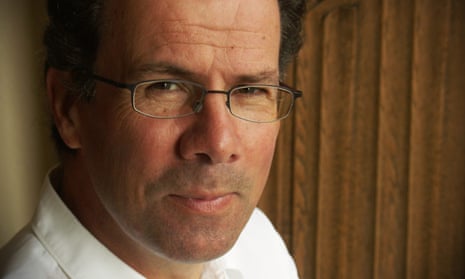A few days ago, after I had won this year’s BBC national short story award with Briar Road, a journalist asked me: “So where does the writing come from?” She hadn’t read Briar Road, and seemed unaware that I have written nine novels, but she did know that I had once worked at Rough Guides, and seemed to find it remarkable that I had transformed myself from a guidebook editor into a writer of prize-winning fiction. Other journalists have similarly focused on this aspect of my CV. “Former Rough Guides editor” has almost become my byline.
I understand why this is happening: some kind of hook is useful for a minor news item. A biographical quirk comes in handy. Yet I find it odd that my time with Rough Guides, a rewarding episode though it was, is now being presented as if it were the salient part of my writerly life. What compounds the oddity, for me, is that the whole idea of life as a narrative is one that I find problematic, as is clear from my novels.
Plot is not of overriding importance in my work. On the contrary: I am an episodic rather than a narrativist writer. This opposition between the episodic and the narrativist has been elucidated by the philosopher Galen Strawson, who takes issue with the prevalent notion that we perceive our lives as extended and continuous narratives, and that, to quote Oliver Sacks, “this narrative is us, our identities”. Strawson’s dismissal of this claim is robust:
I think it’s false – false that everyone stories themselves, and false that it’s always a good thing. These are not universal human truths … even if they’re true of some people, or even many, or most. The narrativists are, at best, generalising from their own case, in an all-too-human way.
This is a contention with which I am strongly in sympathy, and much of my work presents what might be termed a Strawsoneque worldview. The life of Alexander McIndoe, the protagonist of Ghost MacIndoe, is presented in the form of 56 episodes, one per year. His life is ordinary but richly fulfilled, even though he has no sense of himself as a character of well-defined and sustained identity.
Gideon Westfall, the artist who is the central figure of Nostalgia, is by contrast a man who self-consciously maintains the image of himself that he has developed over the years. But within the novel this self-written story is diffused in a welter of other stories: proceeding by juxtaposition rather than by linear progression, Nostalgia is characterised by sudden shifts of subject, tone and chronology, as the narrative of Gideon Westfall is almost submerged by the sheer plenitude of the place in which he lives. Order, the book suggests, is not something intrinsic to the external world and to our selves – it is something we impose on the inexhaustible stuff of reality.
Nostalgia has been described as a magnetic field of a book. My most recent novel, The river is the river, is perhaps more akin to a mirrored room. At its core is a story about a man who may be the last speaker of his mother tongue, a story that’s embedded within a complex framework of other narratives, generated by the two sisters whose dialogue forms the armature of the novel. One of them could be categorised as a narrativist, and the other an episodic. Thirty pages from the end, their exchange abruptly stops: the final section, Scenes from Childhood, is a sequence of brief and intensely remembered moments, recalled by a writer for whom these scenes are both vividly present and yet distant. The younger self of the person whose experiences are being recalled is addressed as “You”, not “I”.
Like Strawson, I think it’s true that most people are narrativists by inclination, but I don’t think any open-minded reader will struggle with the episodic intricacies of The river is the river. It has no plot to speak of, no overarching narrative. Instead it offers a profusion of stories and incidents, which is perhaps truer to the “great shambles” of life, to steal a phrase from Henry James.
Extract
Kate is struggling with her new project. The story will be set in Prague, or perhaps Berlin, some time in the 1920s. The central character is to be a woman called Dorota (or Dorothea, or Dora). Her husband Jakub (or Jakob), has been killed in the war. Dorota is an attractive woman, and has remarried; her second husband is a decent man; she believes herself to be happy. One day, perhaps ten years after the death of Jakub, she is returning from the shops when she sees a man who might be Jakub – he looks as Jakub would now look, had he survived, she thinks. In the following months she glimpses this man several times, always at a distance. She has no idea what is happening to her: is the man a ghost or a phantom of her imagination? Might he be a double, or a man whose resemblance to Jakub exists only in her mind? Could he even be Jakub himself? Perhaps he had not been killed after all. If he is the real Jakub, why has he not come back to her? Has he lost his memory? There are many possibilities.
More about Jonathan Buckley
Maxine Peake reads Briar Road, winner of the 2015 BBC national short story award
Buy the book
The river is the river is published by Sort-of Books at £11.99, and is available from the Guardian bookshop for £8.39.

Comments (…)
Sign in or create your Guardian account to join the discussion